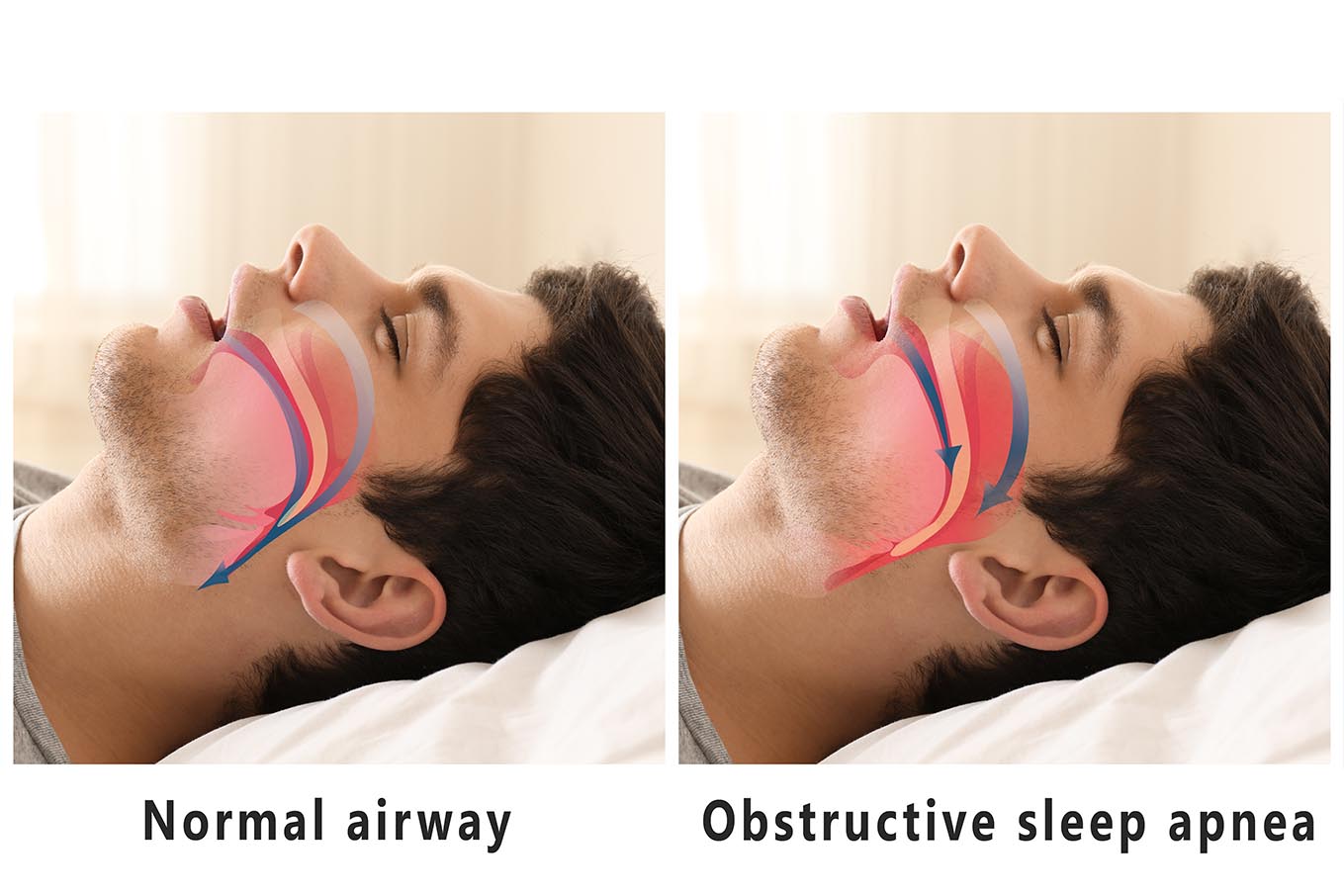The Dalai Lama has been quoted saying “Sleep is the best meditation,” and given what we know about sleep apnea and its influence over the stress hormone cortisol, we know how accurate he is. It actually doesn’t take long for untreated sleep apnea to raise cortisol, adrenal levels and blood pressure, which can create undue stress on the body.
When the body is fighting off an acute, chronic or traumatic stress, which can be caused by sleep apnea-induced awake periods, your stress hormone (cortisol) increases which has a broader impact on the entire body. When you understand the intricacies of how the human body functions, you can start to understand the ways you can help or hinder its performance. If you have sleep apnea and think it’s not affecting anything or anyone (except maybe the person sleeping next to you), you may be surprised to learn it can cause erectile dysfunction, weight gain and fatigue to name just a few conditions.

Sleep apnea is playing havoc with your cortisol, the stress hormone
It’s not uncommon for people to think their sleep apnea is stress-induced, after all, a stressed body can’t rest well, and when you can’t rest well, you have poor sleep (enter: sleep apnea). But the reality is the causal relationship between the two is actually reversed. Sleep apnea is what can cause stress!
Normally, your cortisol levels stay in balance thanks to two areas of your brain staying on top of regulating production – your hypothalamus and your pituitary gland.
When you have sleep apnea, your breathing stops temporarily, oxygen levels drop, your brain signals everything to go back to work, and your sleep is continually disrupted all night long. Essentially, your body’s sympathetic nervous system – the fight or flight response – is activated when your parasympathetic nervous system – the rest and relax state – should be the one in the spotlight while you slumber.
This is how sleep apnea affects cortisol. Each of these stages contributes to the fight or flight reaction in the body because it’s being placed under stress. This activates the release of cortisol into the bloodstream to your organs, skin, muscles and other tissues – essentially, your entire body. Increased cortisol levels can be responsible for increased blood sugars, inflammation, high blood pressure and adrenal fatigue.
Sleep apnea induced cortisol can impact basic bodily functions
Sleep apnea is linked with oxidative stress (an imbalance between free radical activity and antioxidant activity), inflammation, obesity and many more conditions that affect the human body. No amount of blueberries or artichokes can compensate for the reduction of antioxidant activity that takes place due to sleep apnea! When your body is in a state of oxidative stress, pathogens aren’t being attacked like they should, which can cause infection, and an increase in free radicals can damage proteins, lipids and DNA which all contribute to wellness.
Common diseases born from oxidative stress can include diabetes, heart disease, cancer and neurodegenerative diseases such as Parkinson’s or Alzheimer’s.
Oxidative stress can also cause inflammation in the body because free radicals are being produced in excess, and we know these can damage healthy cells. This is what leads to inflammation. The problem with sleep apnea-induced oxidative stress, is that it can also encourage the inflammatory response to kick into gear, which ironically produces more free radicals.
Minimising oxidative stress requires a change in lifestyle and diet. Oxidative stress and sleep apnea can benefit from weight loss, especially because excess fat can narrow the airway and also play a role in free radicals being produced.
Because sleep apnea affects the quality and quantity of your sleep, it can also cause other side effects and conditions including a weakened immune system, fatty liver disease, increased risk of stroke and of course, fatigue. The impact of fatigue on one’s health and wellbeing should not be underestimated – sleep deprivation can result in anxiety, depression, colds and flus, poor productivity, and microsleeps at dangerous times (like driving or operating machinery).

Don’t let sleep apnea ruin your sleep or your health
When you treat your sleep apnea, you treat your body to some reprieve so that it can get back to firing on cylinders. Physical activity, dietary modifications, relaxation and healthy sleep helps improve cortisol levels to maintain a steady balance of the whole nervous system.
Want to say goodbye to sleep apnea and hello to feeling good and thinking clearly? Here are some ways to treat sleep apnea and reduce cortisol levels, inflammation and obesity…
- Increase exercise – while not everyone with sleep apnea is overweight or obese, carrying extra waight is certainly a typical characteristic of apnea sufferers. As well as the cardiovascular benefits, weight loss that can result from exercise has been linked with reducing fat cells, fluid accumulation in the neck, and systemic inflammatory response, and increasing the muscle tone in the throat and deeper sleep
- Follow nutrition or dietary programs – eating well to lose weight can have a significant impact on your sleep apnea. Weightloss of 10-15% leads to approximately a 50% reduction in the severity of sleep apnea.
- Use a CPAP – this device delivers positive airway pressure, meaning no more disruption to your breathing while you sleep. This is considered the gold standard for all severity levels of obstructive sleep apneaConsider mandibular advancement dental splints – these are an oral appliance that help keep the upper airway unobstructed by keeping the jaw in position
- Look into nasal surgery – by removing nasal obstructions or increasing the size of the nasal passage, you can allow more air to flow freely while sleeping
- Harness the power of breathwork – this can activate your parasympathetic nervous system to help you rest and recharge
You can screen for obstructive sleep apnea by taking an at home sleeping test – this sleep assessment can help you identify if this is the root cause of your poor sleep. If it is, help is at your fingertips. The domino effect of treating sleep apnea means not only will your sleep improve, but your overhealth should too

